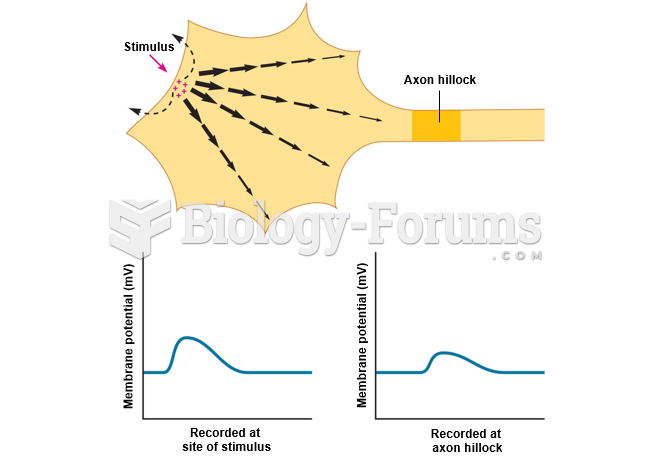|
|
|
Once thought to have neurofibromatosis, Joseph Merrick (also known as "the elephant man") is now, in retrospect, thought by clinical experts to have had Proteus syndrome. This endocrine disease causes continued and abnormal growth of the bones, muscles, skin, and so on and can become completely debilitating with severe deformities occurring anywhere on the body.
Many of the drugs used by neuroscientists are derived from toxic plants and venomous animals (such as snakes, spiders, snails, and puffer fish).
Glaucoma is a leading cause of blindness. As of yet, there is no cure. Everyone is at risk, and there may be no warning signs. It is six to eight times more common in African Americans than in whites. The best and most effective way to detect glaucoma is to receive a dilated eye examination.
Green tea is able to stop the scent of garlic or onion from causing bad breath.
Patients should never assume they are being given the appropriate drugs. They should make sure they know which drugs are being prescribed, and always double-check that the drugs received match the prescription.
 Immunization with a vaccine. A healthcare professional is injecting a vaccine into the patient’s arm
Immunization with a vaccine. A healthcare professional is injecting a vaccine into the patient’s arm
 Serum protein electrophoresis is a technique in which serum components separate into 5 different ...
Serum protein electrophoresis is a technique in which serum components separate into 5 different ...





